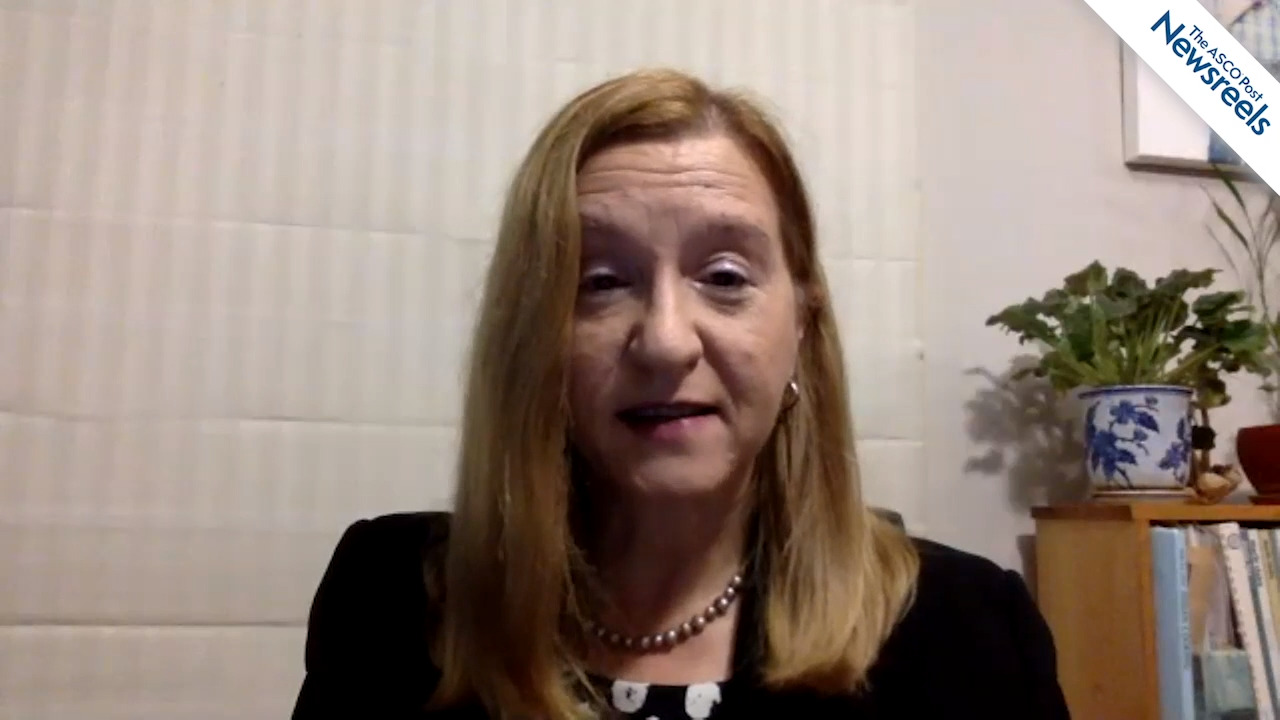Narjust Duma, MD, and Gladys I. Rodriguez, MD, on A First for Hispanic Women: Formation of a YIA for Latinas
2021 ASCO Annual Meeting
Narjust Duma, MD, of the Carbone Cancer Center at the University of Wisconsin, Madison, and Gladys I. Rodriguez, MD, of South Texas Oncology and Hematology, talk about the underrepresentation of Hispanic individuals in medicine, especially in oncology, and their efforts to create the first Young Investigator Award in Recognition of an Outstanding Latina Researcher to encourage Hispanic women to enter medicine and cancer research.
The ASCO Post Staff
Nadia Harbeck, MD, PhD, of Ludwig Maximilian University of Munich, discusses results from the ADAPT HR–/HER2+ trial, which showed, for the first time, improved pathologic complete response and survival in patients with early breast cancer who were treated weekly with a de-escalated 12-week regimen of neoadjuvant paclitaxel plus pertuzumab and trastuzumab (Abstract 503).
The ASCO Post Staff
Sibylle Loibl, MD, PhD, of the German Breast Group, discusses results from the phase III GeparNUEVO study, which investigated neoadjuvant durvalumab in addition to anthracycline/taxane-based neoadjuvant chemotherapy in patients with early triple-negative breast cancer (Abstract 506).
The ASCO Post Staff
Linda R. Mileshkin, MBBS, MD, of the Peter MacCallum Cancer Centre, discusses phase III findings from the OUTBACK trial, which showed that adjuvant chemotherapy given after standard cisplatin-based chemoradiation for women with locally advanced cervical cancer did not improve either overall or progression-free survival (Abstract LBA3).
The ASCO Post Staff
Byoung Chul Cho, MD, PhD, of the Yonsei Cancer Center, discusses study results that showed treatment with the EGFR-MET bispecific antibody amivantamab plus the EGFR inhibitor lazertinib yielded responses in 36% of chemotherapy-naive patients with non–small cell lung cancer whose disease progressed on osimertinib. Genetic biomarkers may be able to identify patients most likely to benefit from the combination regimen (Abstract 9006).
The ASCO Post Staff
Ingrid A. Mayer, MD, of Vanderbilt University Medical Center, discusses phase III results from a trial that showed patients with triple-negative breast cancer who had residual invasive disease after neoadjuvant chemotherapy had lower-than-expected invasive disease–free survival, regardless of study treatment with platinum-based chemotherapy or capecitabine (Abstract 605).





